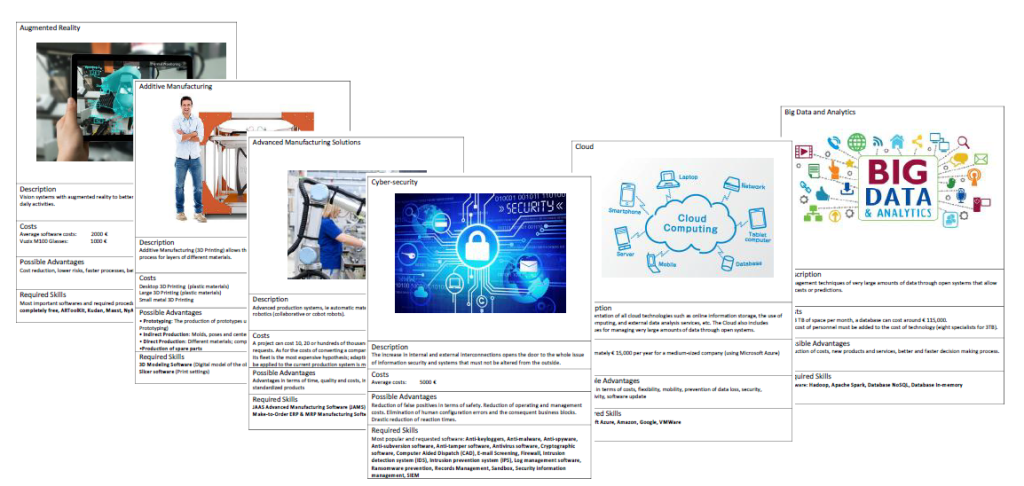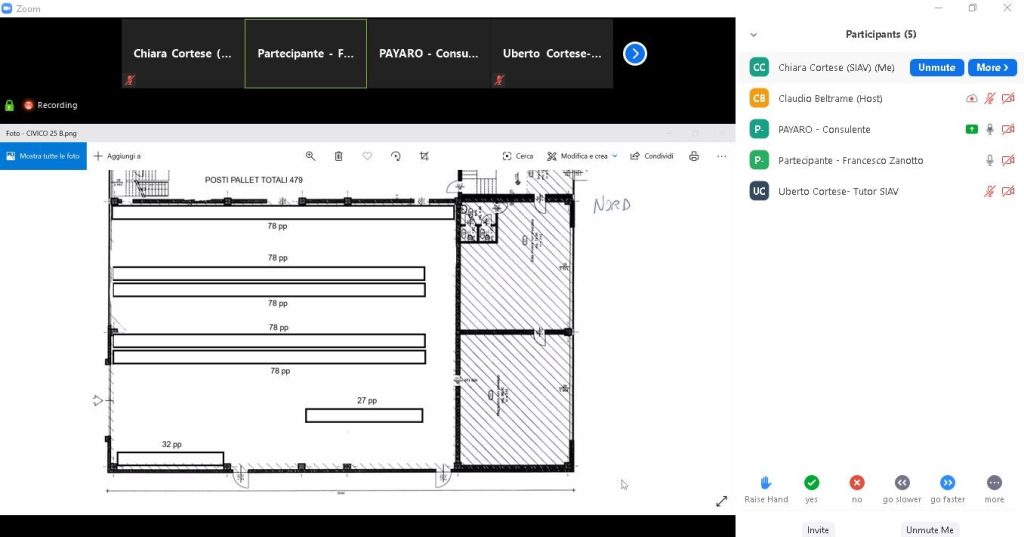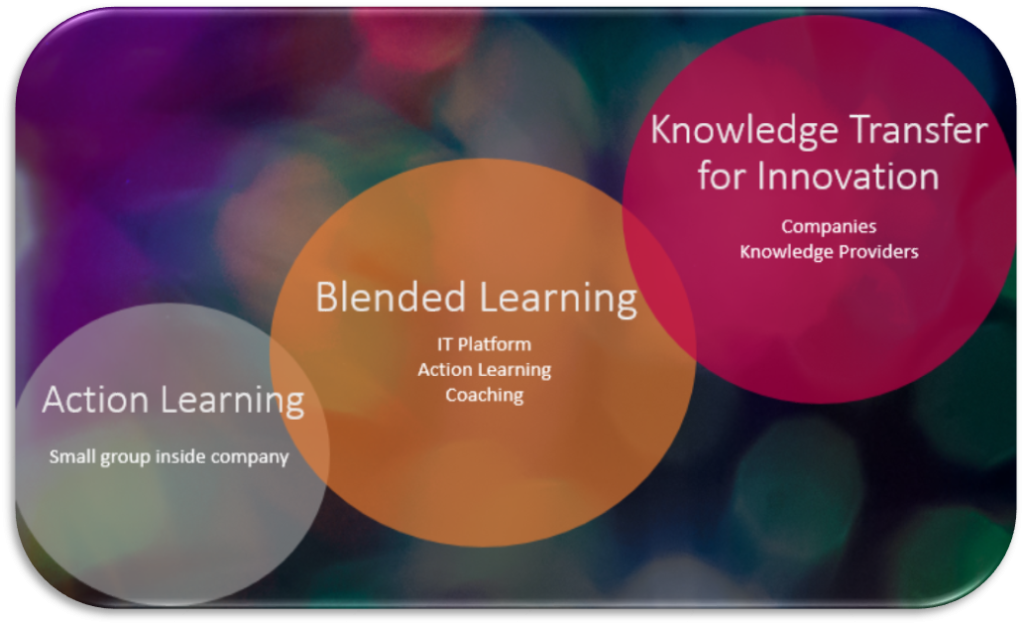Second Approach
For the implementation of the experimental actions foreseen within the Local Pilot Actions it has been adopted a methodological approach which includes the recourse to a balanced use of a set of different methodologies allowing to support and accelerate the whole process of knowledge transfer. In the earlier phases of DISSEMINATION and AWARENESS of FUTURE 4.0 project, foreseen within the Local Pilot Actions, it has been mainly adopted a Face-to-face knowledge transfer approach. Despite being one of the most traditional type of learning methodology, the participants can benefit from a greater level of interaction contents with the experts/speakers and intensity in terms of contents.
The DISSEMINATION and AWARENESS actions implemented within the five Local Pilot Actions have been traduced mainly in Seminars, realized in physical way in attractive locations. These actions have been led mainly by academics from universities and external experts as well with different and high levels of expertise in fields of Industry 4.0, applied technologies to business realities and 4.0 Industrial Revolution. The DISSEMINATION actions had the purpose to inform and present the FUTURE 4.0 project, goals, outcomes achieved in the project analysis phase and to spread the Local Pilot Action means.




The AWARENESS ones aimed to spread the technological megatrends and to provide to companies active in Naval Industry, shipbuilding and related supply chain basic knowledge on 4.0 and digital technologies illustrating them their potential applications. In many interventions were implemented a blended learning approach which includes the recourse to supporting materials as video and examples of concrete applications of 4.0 technologies as well as the combination of plenary and working groups sessions.



A very effective methodology for catching companies’ feedbacks, points of view, perceptions and priorities related to 4.0 technologies and related skills is the Card Game Analysis, developed by the Polytechnic of Bari and already tested in the previous analysis project phase. This innovative methodology, which has been tested in various AWARENESS actions, is a very simple and visual methodology for selecting the priority on the interesting technologies for the company connected with the costs, advantages and skills requirement.

The methodology initially implemented in the personalized in-company AQUISTION (16 hours) and TRANSFORMATION (32 hours) interventions on deeper and applied knowledge into companies of one or more selected KETs enabling technologies, foreseen in the five Local Pilot Actions, has been the Action Learning for innovation. The principles of Action Learning can be summarised in:
- people learn most effectively from sharing the problems they face in implementing projects;
- real working environments are the most effective environments for learning;
- as much time as possible should be devoted to questioning, workshops and group work
- top management and participants must have clear and shared objectives and support change programmes with sincere interest, with no hidden ulterior motives;
- the presence of a facilitator in the teams is only appropriate to help people and teams to learn
- sense of openness and transparency are necessary;
- the performance of training activities must be flexible
Confindustria Veneto SIAV in 1999 began experimenting the Action Learning to accelerate organisational change and improve the performance of production processes. Over the years a methodology, created for large companies and organisations, has become an effective tool for the development and renewal of SMEs in the area supporting especially the technological knowledge transfer applied to processes and product for boosting innovation and competitiveness.
In the FUTURE 4.0 project the Action Learning has been applicated into AQUISITION (16 hours) and TRANSFORMATION (32 hours) interventions with the specific main aim of introducing 4.0 technologies and innovations as well as developing related news skills and knowledge for their proper management. In these phases the Action Learning has been combined with the Platform FUTURE 4.0, as supporting tool and collaborative e-learning in the technologies 4.0.




At this regard it should be also pointed out that since the really early steps of the design of the Future 4.0 project, as well as in experimental interventions foreseen within the five Local Pilot Actions, the e-learning has been a methodology and an essential asset. Companies increasingly need environments and methodologies that allow their human resources to train and develop skills in more flexible places and times.
The possibility of using contents related to 4.0 technologies in e-Learning platforms, developed mainly on community initiatives, means for companies to carry out a personalized path that allows them to acquire knowledge and to deepen some characteristics of Enabling Technologies (KETs). Due to Covid-19, e-learning has become an essential and in the last months almost unique tool, given the impossibility to provide “face to face” training.
The project partners have been very flexible and agile to move from in person programs to Digital Learning in a fast way. In few days many Local Pilot Action activities have been partially and, in some cases, completely digitalized by the recourse to the digital or virtual learning formula and approaches such as webinars.




The interest of companies in digital training, as also resulting from the high level of involvement of companies who benefited from the experimental actions foreseen in the Local Pilot Actions, is growing. According to data from the Observatory of the Politecnico di Milano, the most widespread Digital Learning tool is the video course (adopted by 63% of organizations), followed by webinars (60%). The webinars in particular have been also the tool most adopted by partners and experts for implementing the Local Pilot Actions experimental interventions for the knowledge transfer on 4.0 technologies. The main feature of live webinars is the interactivity and the ability to discuss, send and receive information in real time. In the FUTURE 4.0 most of experimental actions have combined the digital learning – webinars, web meetings, web conferencing and virtual training sessions – with face-to-face knowledge transfer and the action learning methodology.

